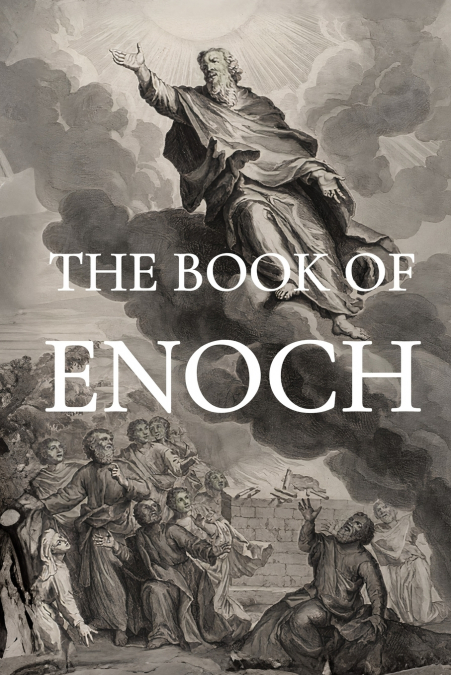
Horn / Thomas R.
The Bible, as we hold it today, is esteemed by many religious institutions and especially Conservative Christians to be the inspired, inerrant Word of God. This doctrinal position affirms that the Bible is unlike all other books or collections of works in that it is free of error due to having been given by inspiration of God, and is profitable for doctrine, for reproof, for correction, for instruction in righteousness: that the man of God may be perfect, thoroughly furnished unto all good works (2 Tim. 3:16, 17). While no other text can claim this same unique authority, the Book of Enoch is an ancient Jewish religious work, ascribed by tradition to Enoch, the great-grandfather of Noah, which played a crucial role in forming the worldview of the authors of the New Testament, who were not only familiar with it but quoted it in the New Testament, Epistle of Jude, Jude 1:14 15, and is attributed there to 'Enoch the Seventh from Adam' (1 En 60:8). The text was also utilized by the community that originally collected and studied the Dead Sea Scrolls. While some churches today include Enoch as part of the biblical canon (for example the Ethiopian Orthodox Tewahedo Church and Eritrean Orthodox Tewahedo Church), other Christian denominations and scholars accept it only as having historical or theological non-canonical interest and frequently use or assigned it as supplemental materials within academic settings to help students and scholars discover or better understand cultural and historical context of the early Christian Church. The Book of Enoch provides commentators valuable insight into what many ancient Jews and early Christians believed when, God, who at sundry times and in divers manners spake in time past unto the fathers by the prophets (Heb. 1:1). As Dr. Michael S. Heiser in the Introduction to his important book Reversing Hermon so powerfully notes: For those to whom 1 Enoch sounds unfamiliar, this is the ancient apocalyptic literary work known popularly (but imprecisely) as the Book of Enoch. Most scholars believe that 1 Enoch was originally written in Aramaic perhaps as early as the 3rd century B.C. The oldest fragments of the book were found among the Dead Sea Scrolls and dated to roughly the second century B.C. This places the book squarely in the middle of what scholars call the Second Temple Period (ca. 500 B.C. 70 A.D.), an era more commonly referred to as the Intertestamental Period. This book will use the more academic designation ( Second Temple Period ) [...] The Watcher story of 1 Enoch, as many readers will recall, is an expansion of the episode described in Genesis 6:1-4, where the sons of God (Hebrew: beney ha- elohim) came in to the daughters of man (Gen 6:4; ESV). Consequently, Watchers is the Enochian term of choice (among others) for the divine sons of God. While the story of this supernatural rebellion occupies scant space in Genesis, it received considerable attention during the Second Temple Period [...] The Enochian version of the events of Gen 6:1-4 preserves and transmits the original Mesopotamian context for the first four verses of the flood account. Every element of Gen 6:1-4 has a Mesopotamian counterpoint a theological target that provides the rationale for why these four verses wound up in the inspired text in the first place. Connections to that backstory can be found in the Old Testament, but they are scattered and unsystematically presented. This is not the case with Second Temple Jewish literature like 1 Enoch. Books like 1 Enoch preserve all of the Mesopotamian touchpoints with Gen 6:1-4 when presenting their expanded retelling of the events of that biblical passage. The Book of Enoch is therefore intended to be an important supplemental resource for assisting serious researchers and students in the study of the Bible.